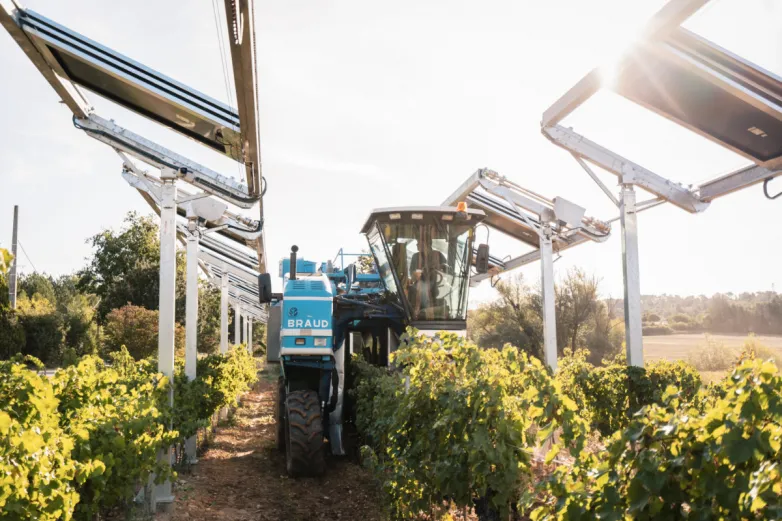France’s Ombrea develops solar blinds with sliding PV panels
- The company said its technology, which is managed by an AI-based system, can be used in agrivoltaic projects.

Ombrea installed its mobile shade system on a vineyard in Rians, France, and the first harvest was a conclusive success.
“With our solution, there was a drop of one degree of alcohol on the first harvest,” said Julie Davico-Pahin, co-founder of Ombrea, which specializes in shading solutions to protect agricultural crops from climatic hazards, such as extreme temperatures, hail and frost. “With climate change, the drought and the sun is too strong on the vines. Sugar levels rise very quickly in the grapes and, consequently, the rate of alcohol increases sharply in the wine. For example, wines with 15 ° alcohol are obtained.”
However, Davico-Pahin insists that the company’s business is firmly focused on the ground – not what is above it. PV and agriculture can be effectively combined, she said, but agronomists need to control the process. There are several reasons for this.
“When we know how sensitive plants are to the slightest variation in climate, shading for example, we must be extremely vigilant. We have seen the pitfall of a large number of projects, including photovoltaic greenhouses in the southeast,” Davico-Pahin said.
On the other hand, there is a conflict, as the objectives of renewable energy production under France’s Multiannual Energy Program (EPP) are extremely ambitious, and the scarcity of land is an issue. “France is an agricultural country, but the precariousness of farmers is real. If we add land speculation on their land, it further complicates their situation. A diversion of agricultural land would be badly perceived by the farmers,” she said.
Davico-Pahin said that PV can be built on agricultural land, but only under specific conditions. Power providers regularly contact the company to develop partnerships, while customers express interest in the solar. “Because they trust our approach,” she said.
Ombrea does not wish to specialize in solar energy. On the contrary, it aims to commercialize its product while it continues to focus on R&D.
“We have substantial budgets in R&D, to develop tools that are complementary to our shelters to respond to targeted problems, such as rainwater harvesting or anti-hail nets,” Davico-Pahin said.
Also read

